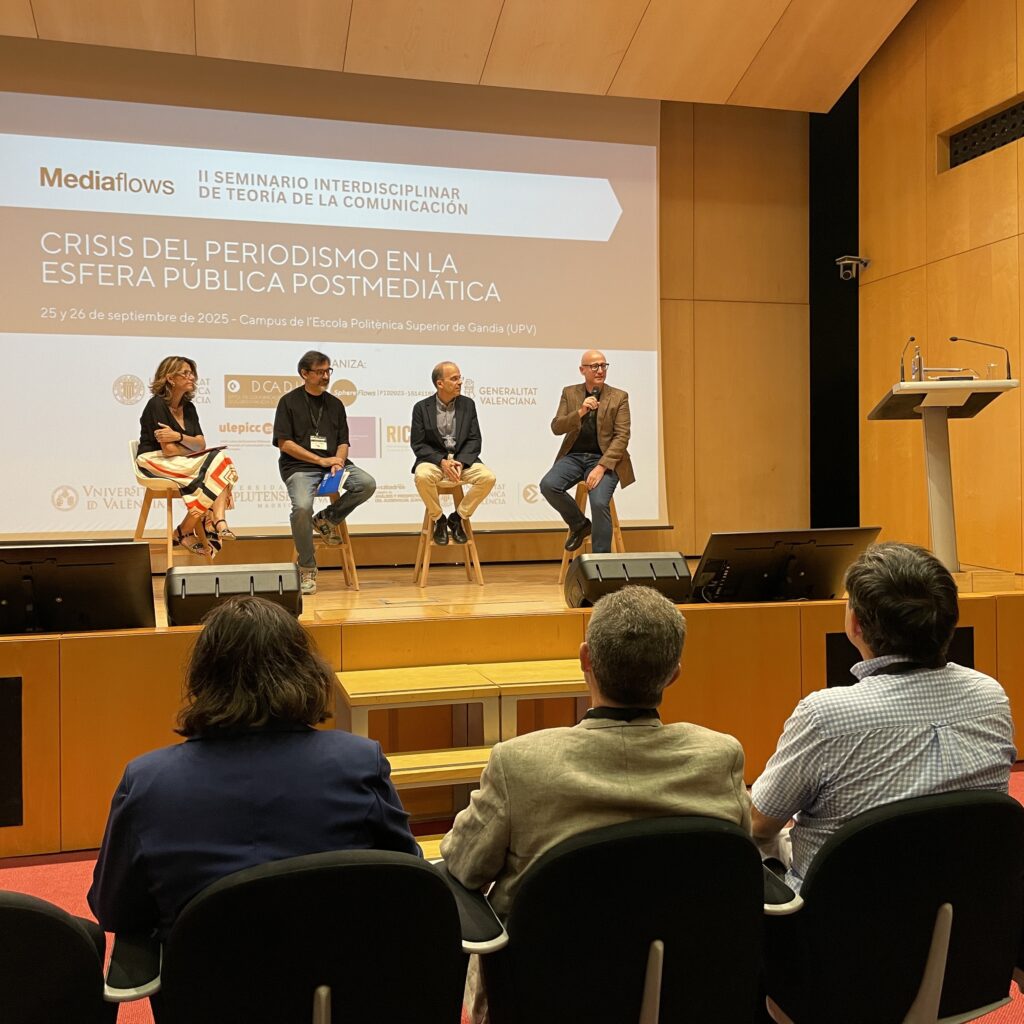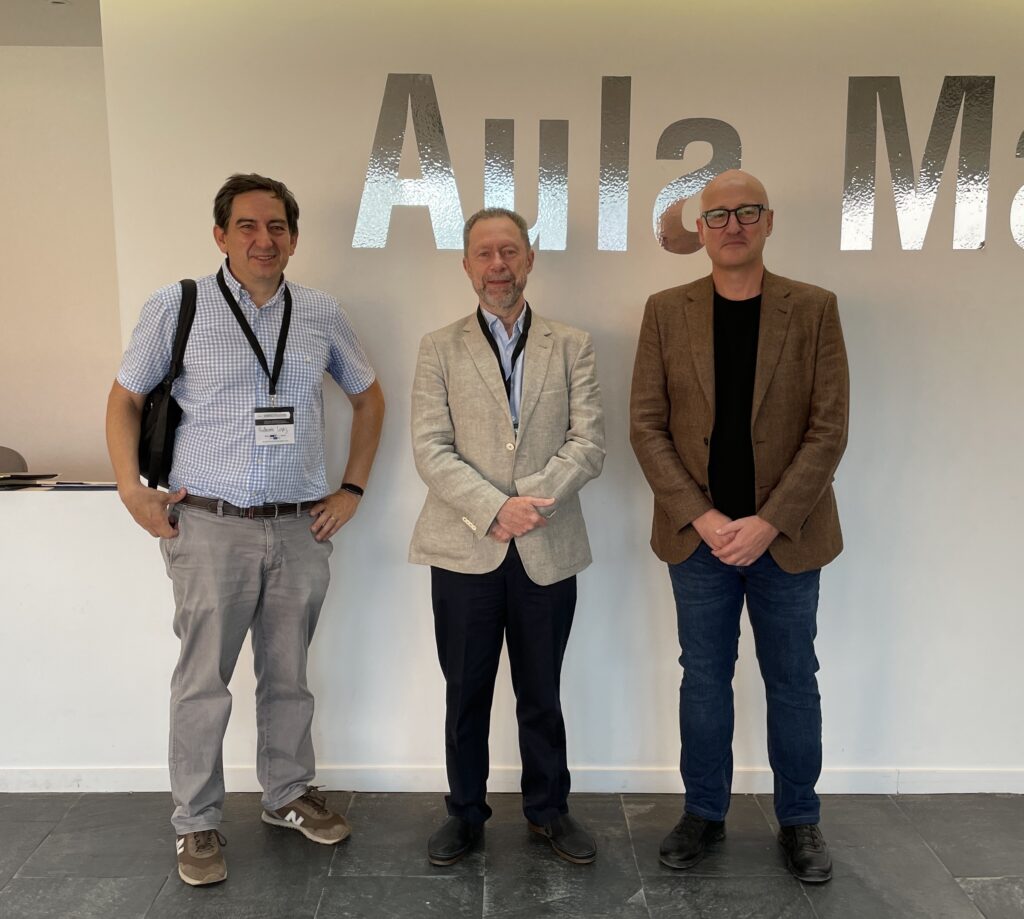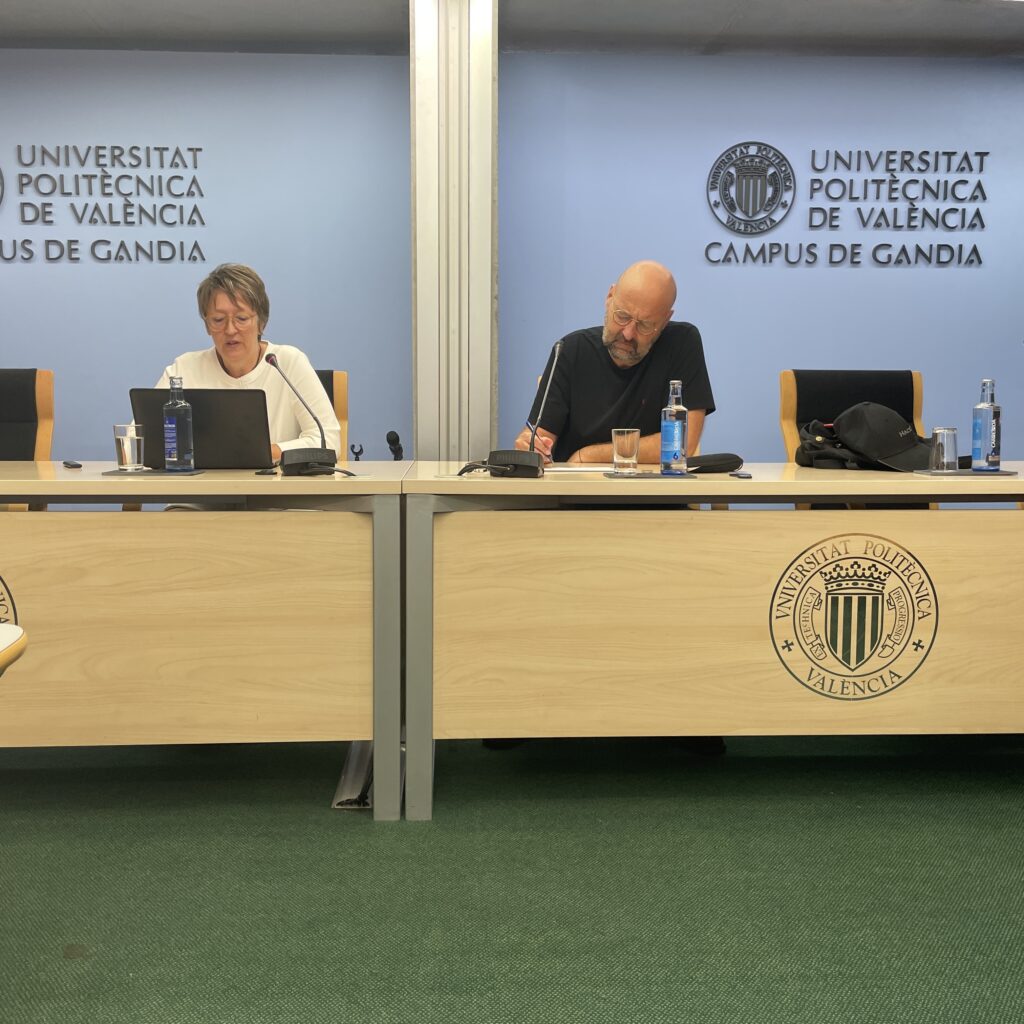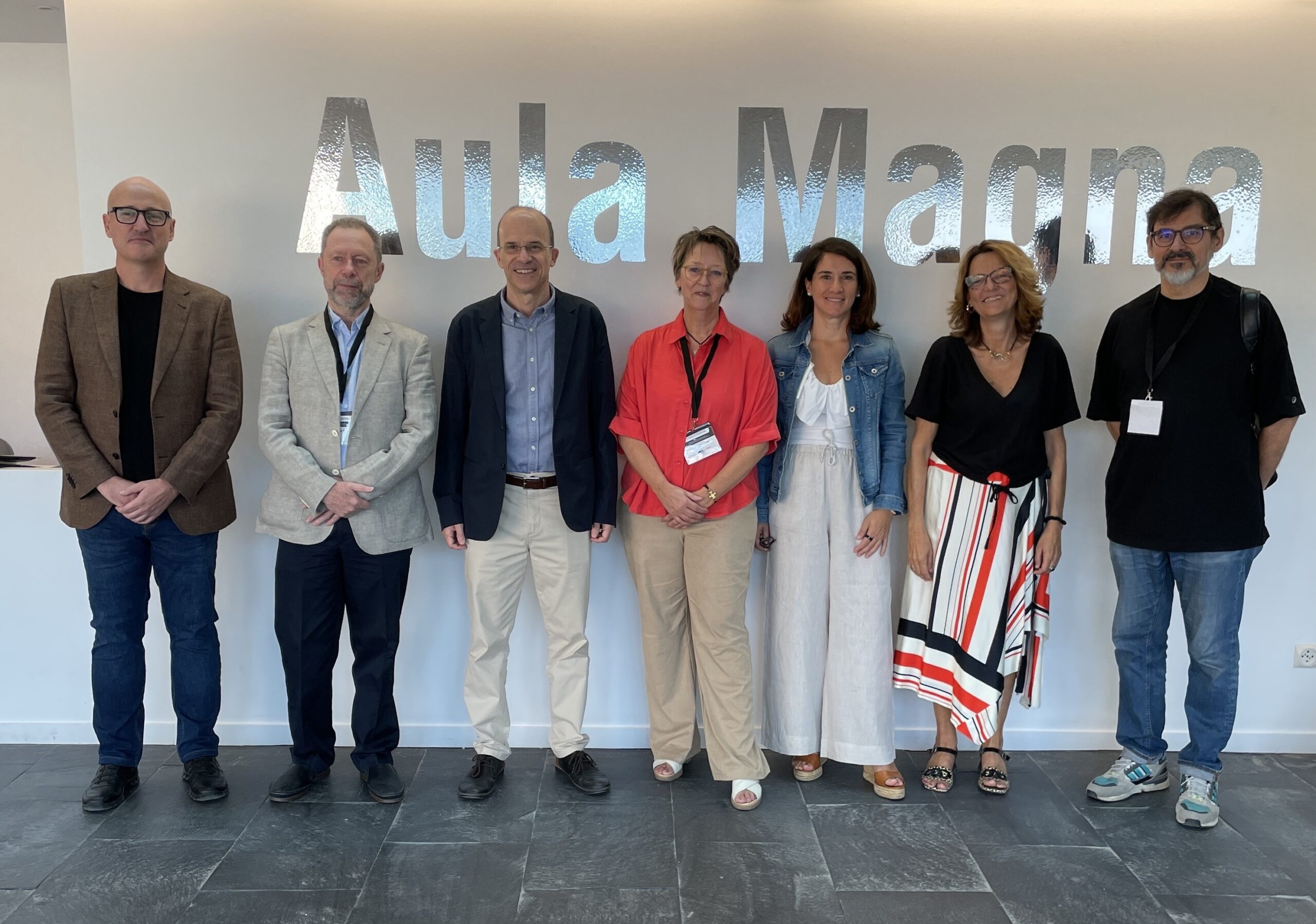The Gandia campus hosted the second edition of the Interdisciplinary Seminar on Communication Theory. The meeting organized by Mediaflows has become a space for reflection on the so-called “information disorders of our society”.
Under the title “Crisis of journalism in the post-media public sphere”, the Gandia campus of the Universitat Politècnica de València (UPV) has hosted the second edition of the Interdisciplinary Seminar on Communication Theory. This meeting, organized by the research group Mediaflows has been set up “as a space for interdisciplinary reflection in which to address the transformations of the public sphere today, as well as the journalistic and informative media system”.
For the director of the Gandia campus, Vicenç Almenar, “this seminar has been an opportunity for our students, since the issues that have been discussed are related to the communication studies that we teach”. On the other hand, for Germán Llorca, the seminar was “an opportunity to problematize and discuss ideas about the so-called information disorders in our society,” said campus professor and co-director of the seminar.

Information disorders in our society
Changes in information consumption; innovations in journalistic formats or the political and social use of hoaxes and their consequences; strategies for promoting critical citizenship and combating disinformation or job insecurity are some of the aspects dealt with at the congress. As Llorca pointed out, “a specific approach has been made to those key points that are especially affected by the current technological context of communication”.
Disinformation and populism
The inaugural conference of the seminar was given by the Professor of Journalism at the Complutense University of Madrid (UCM), José Luis Dader, the new challenges of political communication under the techno-sentimental environment and populism were discussed by Dader. According to Dader, the predominant ideology of sentiment means that points of view “are not transmitted through the articulation of ideas, but through the manifestation of emotions”. Politics is of interest “as a spectacle” and the consumption of content “is summed up in seconds, without the rigidity of contrasting data”. In short, political communication has been transformed, “we feel politics instead of analyzing it”, he declared.

The seminar papers addressed issues such as artificial intelligence and emerging narratives in journalism. Also, employability in the communication industry and its impacts in the context of platform capitalism. “We have had more than 30 communications and 6 round tables”, emphasizes the co-director of the seminar, which have brought together researchers, professionals and students for two days of knowledge exchange, dialogue and learning.
For its part, Astrid Wagner from the Institute of Philosophy of the CSIC, referred to the public space and responsible communication in times of post-truth during the closing conference. For the researcher, the concept of truth has entered into crisis, giving rise to the emergence of disinformation campaigns and favoring the polarization of ideas, as well as denialism and the active ignorance of citizens.

Second edition of the Interdisciplinary Seminar on Communication Theory
The organizers of the seminar also indicated that the meeting, held on the Gandia campus, “has been an opportunity to strengthen research links between the staff of the Universitat Politècnica de València, the Universitat de València and the Universidad Complutense de Madrid, who are dedicated to working on the same topics”.
In addition, support has been provided by the Chair of Audiovisual Analysis and Prospective (CAPA) and with the collaboration of Red de Investigación en Comunicación Comunitaria, Alternativa y Participativa (RICCAP), ECREA (European Communication Research and Education Association) and Unión Latina de Economía Política de la Información, la Comunicación y la Cultura (ULEPICC-Spain); associations that “bring together hundreds of researchers from all over the world who work on the same topics from complementary perspectives”.

